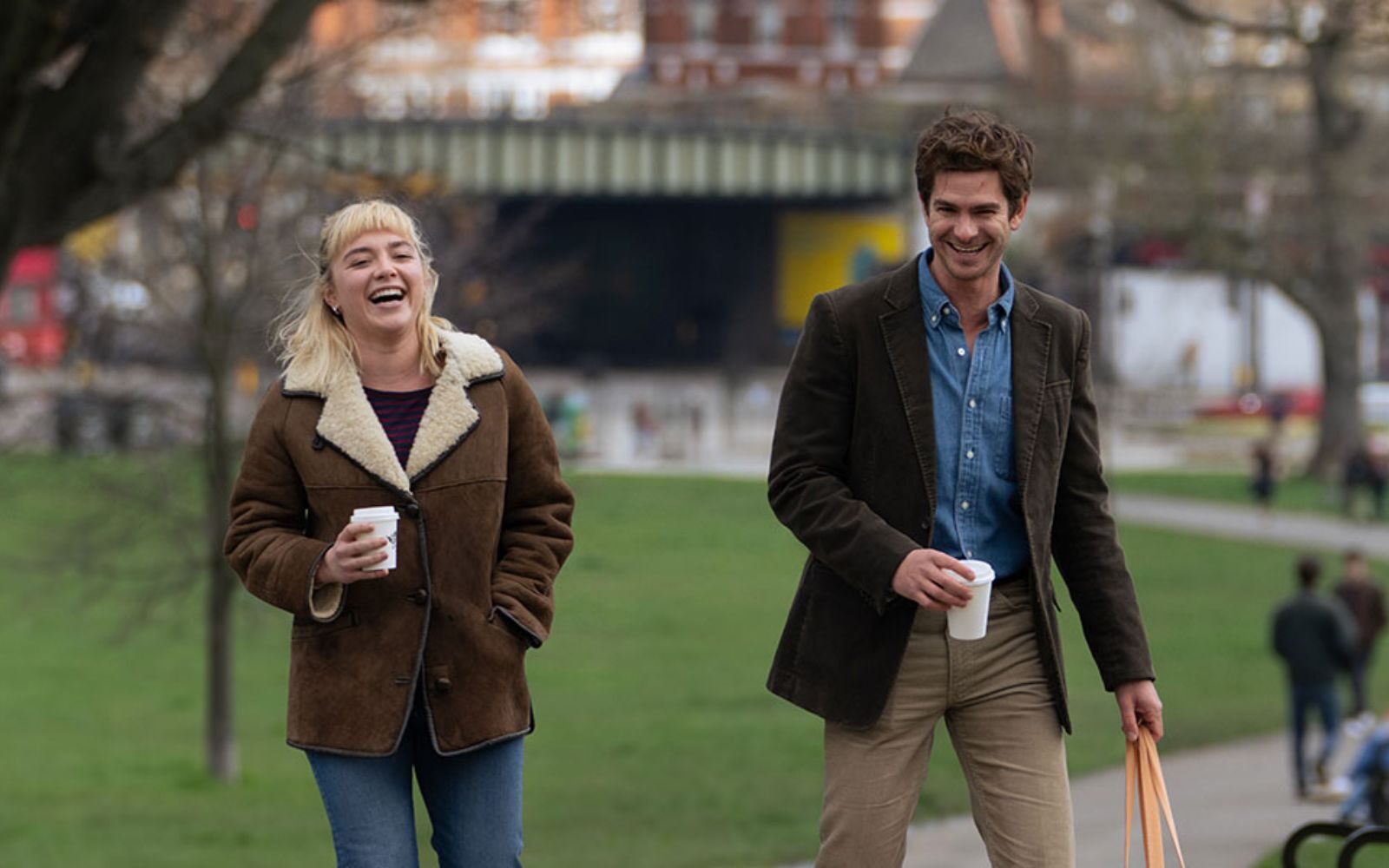
We Live in Time Fails to Overcome Its Bland Sappiness
At its best, director John Crowley’s film evokes a weepy page-turner, and at its worst, feels like a glorified Hallmark movie.
Directed by John Crowley
by Prabhjot Bains
- Published on
Love may be a timeless feeling, but is at its most potent in the present, the fleeting now. It’s a sentiment that sits at the heart of John Crowley’s We Live in Time, a non-linear account of a decade-spanning relationship, where protagonists Almut (Florence Pugh) and Tobias (Andrew Garfield) find their romantic odyssey painfully dictated by the limits of time.
It’s a film heavily reliant on star power, even having the two leads’ official credits appear when they first intimately share the screen. Yet, for as stirring as Pugh and Garfield’s performances are, there is an air of sap and schmaltz that Crowley’s film can’t overcome, often feeling emotionally stagnant and manipulative rather than earnest and illuminating. At its best, We Live in Time evokes a weepy page-turner, and at its worst, it feels like a glorified Hallmark movie.
Tobias works for Weetabix and Almut is a budding fine-dining chef. The two meet for the first time in a hospital after Almut accidentally runs him over. It’s the stuff made of rom-com dreams, but that’s not how we meet these characters. The script, penned by Nick Payne, begins in the middle of their life-changing relationship, then non-chronologically hops between key moments and milestones—a pregnancy, a family dinner, a cooking competition, and Almut’s cancer diagnosis are a few of such handpicked instances.
However, the emotional impact lies in how it’s all stitched together. The careful placement of specific events next to each other intensely builds toward triumph and heartbreak. Moments that are years apart come to inform each other, creating a chronological map of emotions rather than events. If nothing else, We Live in Time is a feat of narrative structure that, at times, powerfully recalls the melancholic processes of memory.
Yet, for each raw and authentic moment—frank, unfiltered discussions of family planning, treatment, and priorities—there are far more mawkish and hokier ones, including a spontaneous gas station birth. Such moments feel at home in a breezy romantic comedy, but in a film that attempts to be a revealing, emotionally resonant examination of love and memory, the effect is less amusing and more cloying. At each turn, We Live in Time undercuts the emotional palpability it seeks to foster, resulting in an experience that feels increasingly generic and bland, a feeling the overly familiar acoustic and piano stings reinforce.
The biggest misstep We Live in Time makes is rendering Tobias and Almut so sanitized and precious. They are characters defined solely by their external circumstances, lacking any real flaws or shortcomings of their own. The two often feel like twee, idealized caricatures rather than real people. Almut suddenly transitions from a steadfast careerist who is apathetic towards children to a cancer patient fixated on motherhood, while Tobias is given even less characterization. Apart from his position at Weetabix, his desire for children, and his undying love for Almut, he remains an enigma—merely one-half of a stock duo. As a result, any inkling of romantic or sexual chemistry between the attractive leads is dead on arrival. While structurally ambitious, We Live in Time is so caught up with the idea of romance that it fails to actually give us one.

